

Gut health is a hot topic across the media recently and our lovely receptionist Anne – who we all know and love – delves into her experiences and the journey she has been on in search of a healthy gut.
On a mission to uncover the inner workings of my own body, I set out on ‘operation gut health’, at the end of last year, to explore this topic.
My interest was initially sparked by reading Davinia Taylor’s ‘It’s Not A Diet’ where she speaks quite candidly about her own battle with weight, and latterly her mental health, both of which deteriorated after years of a nutrient deficient diet.
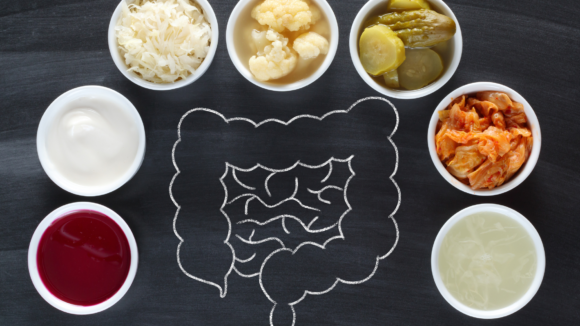
What is Microbiota? Microbiota is the collection of microbes that live in and on the human body.
Some people think of “improved gut-health” as a reduction IBS symptoms. Which is part of it, but focusing solely on that can be very different to a more broad view.

In a quest to dive deeper, I have taken part in the Zoe health study to investigate my own response to foods and the state of health of my own gut microbiome. Professor Tim Spector and Dr Sarah Berry are leading researchers in this field and, with their acquired expertise and some pretty nifty technology, you get a full insight into how your body responds to sugar and fat in addition to gaining an understanding of which bacteria are active in your gut.
The philosophy of the programme is that you can optimise your gut health through understanding your individualised results as every single food and drink is given a unique score based on how your body processes it. The science behind this study is fairly captivating and, although it is a little pricey, you do get quite a bit for your money.
The first part of this personalised testing was eating what are generously referred to as ‘muffins’. Not having a particularly sweet tooth, I was quite looking forward to this treat for both breakfast and lunch. Despite the clever scientific composition of these edible goodies, let’s just say that they won’t be winning any gourmet awards any time soon!
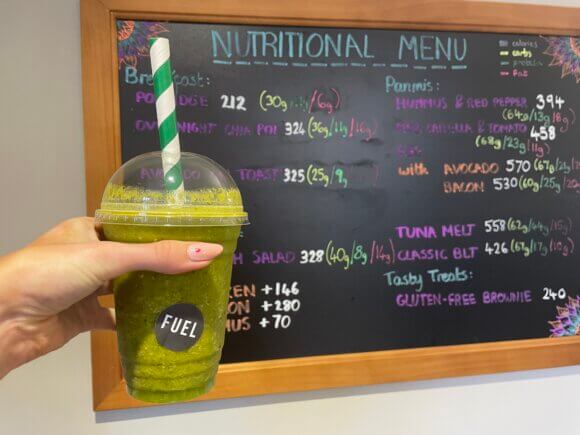
The consumption of these muffins had to be completed in a time sensitive window and, following this, you execute a self administered blood test (finger prick onto a pre-prepared card) and a funky little yellow box is provided to send off the result. This particular test is engineered to assess the body’s response to clearing fat from your system and sadly my response is poor by population standards but luckily in line with my age. This fact is fundamentally something I cannot change but I am encouraged to give myself a 6 hour window between ‘fatty’ based meals.
During this testing period you also have to provide a poop sample – just in case you are eating your dinner, I won’t go into too much of the graphic detail, but let’s just say it wasn’t as bad as expected and they certainly provide enough bits of kit to make the process as straightforward and hygienic as possible.
Overall, my favourite bit of kit was the CGM (continuous glucose monitor) which was a breeze to apply. This is a discrete device worn on the rear of the arm which connects to an downloaded app and provides a real time view of responses to various foods. Whilst the general rule of thumb, when planning food choices, is to avoid sugar spikes – during this phase you are actively encouraged to go a bit crazy and see what effect individual foods (and drinks) have on you.
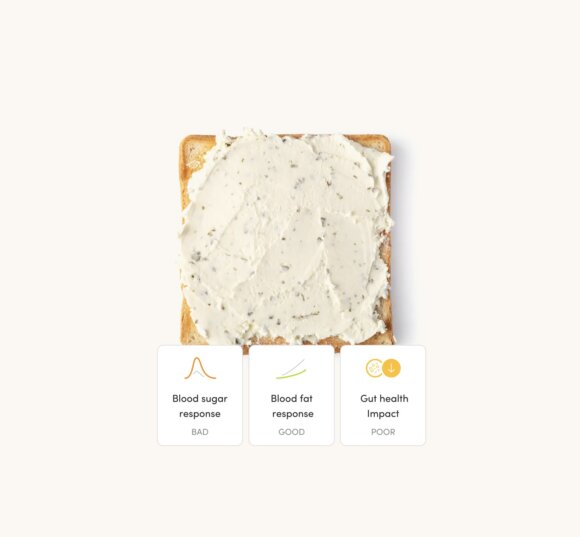 Sadly, I had the flu for part of the time whilst using the monitor so perhaps did not get to use it to its full benefit but I certainly witnessed that pizza and pasta were not my friends! Of significant interest were the choice of food tests available (through the app) where I learnt the importance of combining a fat with a carbohydrate to level out my sugar response and, if I can add a vegetable (my body loves mushrooms apparently), then this is even more advantageous. In addition to this useful knowledge, I also discovered that going for a brisk walk after eating keeps me more on an even keel and within the desired green zone. With the associated mental health benefits this is certainly something I will stick to.
Sadly, I had the flu for part of the time whilst using the monitor so perhaps did not get to use it to its full benefit but I certainly witnessed that pizza and pasta were not my friends! Of significant interest were the choice of food tests available (through the app) where I learnt the importance of combining a fat with a carbohydrate to level out my sugar response and, if I can add a vegetable (my body loves mushrooms apparently), then this is even more advantageous. In addition to this useful knowledge, I also discovered that going for a brisk walk after eating keeps me more on an even keel and within the desired green zone. With the associated mental health benefits this is certainly something I will stick to.
Following this fairly intensive testing period, 4 months access to the Zoe app is provided where you are able to work your way through daily interactive lessons, input your foods to work out their scores (no calorie counting here and no food is off limits) and you can become your own private chef by adding virtual ingredients to generate a meal score. What has been surprising is that no food is off limits but you are encouraged to try and aim for a score of 60+. For example, I love chorizo but it only scores a 2 for me, but by combining it with chickpeas the score vastly improves and creates a very tasty dish. Fruit generally causes a sugar spike with most people and, although an orange has a decent score of 82, for me if I have a few almonds at the same time, my score improves to 97. More food, better score, win win!
It has been enlightening discovering the foods that work best for my body and has certainly helped inform food choices. I was a little stuck on what to do instead of pasta based dishes which were a go to favourite of mine. In the past I have experimented making courgetti (fine strips of shredded courgette manipulated in a spiraliser) as a substitute for spaghetti but found the consistency too wet to be completely enjoyable. Using my clever little app I discovered that Zenb (pasta made exclusively from yellow peas) takes my disappointing score from 46 up to 85 and I can hardly tell the difference. I have still 2 months left using the Zoe app and whilst I may not use it quite as religiously as I did at the start of the programme, it definitely has been eye-opening.
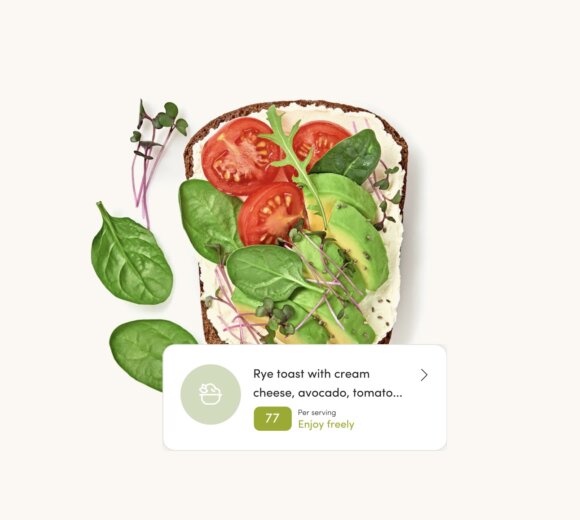
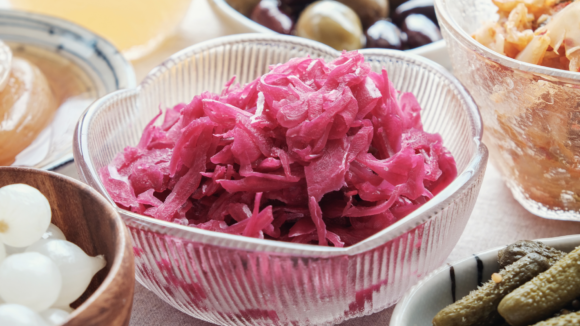
Lastly, if you are interested in joining the Zoe programme, there is an associated cost and waiting list involved. What is cheaper and by default more accessible is the book ‘Food for Life’, a recent publication of Tim Spector’s. Whilst it is quite ‘sciency’ in its approach, each chapter has some useful bullet points and there are some great charts at the back of the book which give a clear overview of the key points covered.
Advance planning of meals, bulk buying and cooking go a long way to ensure you stay on track (as well as donating biscuits and crisps to a local food bank!) and, with the benefits of nurturing a healthy gut being instrumental in both your physical and mental wellbeing, then even a 1% improvement in your daily habits can go a long way.
P.s. just in case you are wondering, my score for Shiraz is 58!
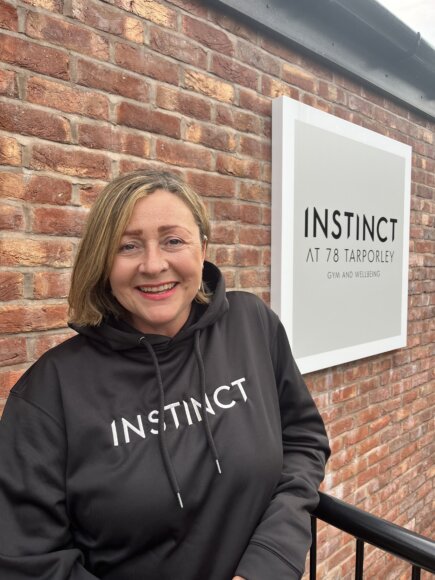
This article has been checked and approved by Nutritionist, Lauren Walker.
Get started with Instinct in Tarporley.
By continuing to use the site, you agree to the use of cookies. more information
The cookie settings on this website are set to "allow cookies" to give you the best browsing experience possible. If you continue to use this website without changing your cookie settings or you click "Accept" below then you are consenting to this.